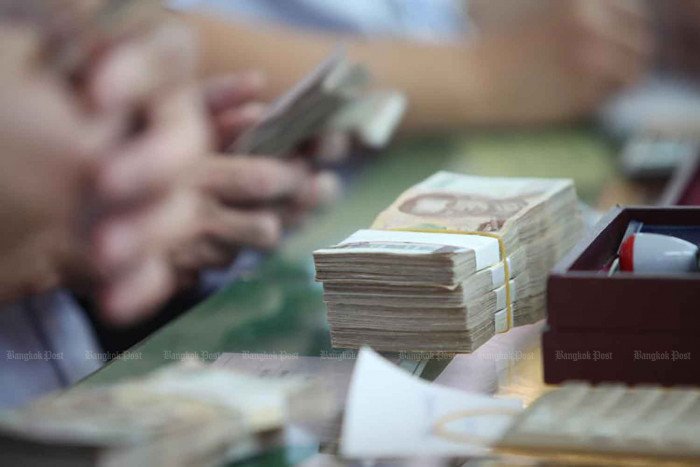The Thai Bond Market Association (ThaiBMA) has revealed a growing trend of bond payment defaults and delays in 2025, particularly among small-cap issuers facing liquidity challenges due to Thailand’s economic slowdown.
In the first half of 2025, bond defaults totalled 2.34 billion baht, involving four issuers: Cho Thavee (CHO), for bonds worth 745 million baht; Clover Power (CV) for 452 million baht; WRX (non-listed) for 408 million baht; and Grand Asset Hotels and Property (GRAND) for 300 million baht.
Deferred bond payments during the period tallied 17.5 billion baht and involved 14 issuers: Property Perfect (PF), tallying 2.73 billion baht; Energy Absolute (EA) at 2.4 billion; GRAND 2.26 billion; Prime Road Power (PRIME) 2.05 billion; Richy Place (RICHY) 1.53 billion; NR Instant Produce (NRF) 1.3 billion; Eastern Power Group (EP) 1.03 billion; JCK International (JCK) 928 million; Country Group Development (CGD) at 798 million; East Coast Furnitech (ECF) 597 million; Sahakol Equipment (SQ) 550 million; Thai Polycons (TPOLY) 360 million; Jasmine Technology Solution (JTS) 422 million; and Begistics (B) 92 million.
In 2023, five issuers defaulted on bond payments worth a combined 16.3 billion baht, while 14 issuers delayed payments involving bonds worth 12.4 billion.
Last year, five issuers defaulted on bond payments worth a combined 3.17 billion baht, while 17 issuers delayed payments worth 37.9 billion in total.
Ariya Tiranaprakij, executive vice-president of the ThaiBMA, said the surge in defaults and delays reflects ongoing economic strain, which has weakened corporate earnings and cash flow for some companies.
While larger corporates may reduce bond issuance in the second half of this year due to cheaper funding alternatives such as bank loans as interest rates dip, smaller companies with weaker financial positions may continue to rely on bond markets despite higher risk, she said.
Investors remain risk-averse, favouring highly rated bonds, while avoiding high-yield or non-investment grade issuers, said Ms Ariya.
To enhance investor awareness, the ThaiBMA introduced warning labels for problematic bonds: failed to pay (FP), failed to pay with guarantee (FPG), default payment (DP), default not related to payment (DNP), and restructured (RS).
These indicators may also be adopted by the Stock Exchange of Thailand to flag high-risk securities, she said.
Somjin Sornpaisarn, president of the ThaiBMA, said as of the second quarter, the total outstanding value of Thailand’s bond market was 17.3 trillion baht, or 93% of Thailand’s GDP, up 1.1% from year-end 2024.
This growth was driven mainly by increased government bond issuance, while corporate bonds outstanding declined slightly, he said.
In the first half of the year, long-term corporate bond issuance dropped 19.3% year-on-year to 399 billion baht, affecting both investment-grade and high-yield segments, said Mr Somjin.
Foreign investors were net buyers of Thai bonds, with net inflows of 32.3 billion baht, bringing total foreign holdings to 900 billion baht, or 5.2% of the Thai bond market’s outstanding value.
According to a market survey by the ThaiBMA, most participants expect the Bank of Thailand to cut its policy rate by 0.25 percentage points in the final quarter of 2025, reducing the rate to 1.50%.
Bond yields are also expected to ease, as respondents forecast the 5-year and 10-year Thai government bond yields to decline by 5-10 basis points in the second half of 2025, driven by monetary policy easing, modest economic growth and global interest rate trends.

